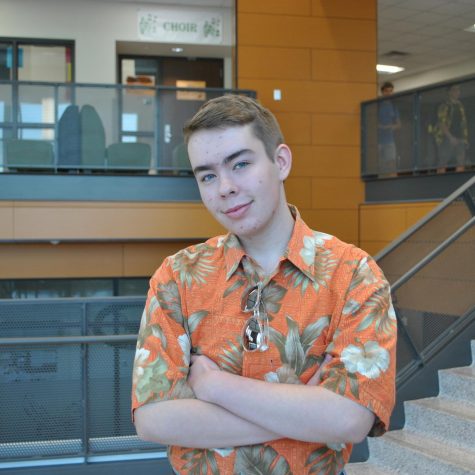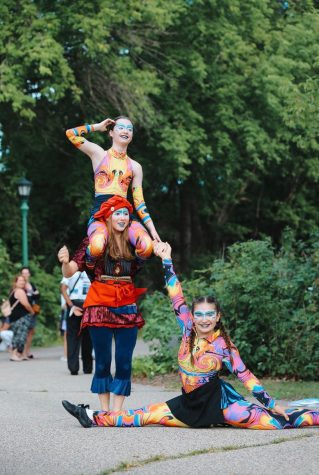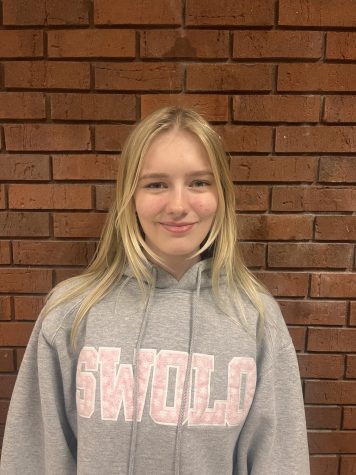Learning vs. Leeching
May 23, 2018
The definition and goals of mission trips have changed drastically over the past 50 years, with solely faith-based missions turning instead to service-based projects and community outreach opportunities. While there are many instances of missionaries using their time in other countries to satisfy a need for self-fulfillment and ego-inflation, church communities across the nation have demonstrated the ability to launch constructive and effective pilgrimages to foreign areas in good faith. This is achieved through education specific to the history of the area prior to the trip, the desire to learn from the people encountered, and an understanding that knowledge is only useful when it is followed by further action.
Speaking from personal experience, mission and service trips are not filled solely by ignorant high schoolers who want a medal for doing the bare minimum. When the Edina Community Lutheran Church decided to send a youth group to El Salvador in the fall of 2016, the goal was to learn about Salvadoran history and to create connections with the members of our sister church in the town of Galilea, Cristo De Paz. Painting the church walls and praying with the children were certainly fun and rewarding pastimes, but the faith-oriented vocation of our trip was to learn about the past and the present and to experience seven days in a life different than our own.
An important part of preparing for this pilgrimage were multiple pre-trip gatherings held in ECLC. Through reading materials, presentations, lectures, and a screening of the movie Romero (1989), we gained valuable knowledge before embarking on our trip. These gatherings were important because it ensured our group was going to a new place with as much knowledge and global worldview as we could, instead of bringing only ignorance and privilege.
JD Mechelke, the youth director at ECLC and the lead organizer of the El Salvador pilgrimage, based his format of the trip off of Paulo Freire’s 1968 novel Pedagogy of the Oppressed, the foundation of the socio-philosophical concept, critical pedagogy. “Education is a form of social justice. The purpose of the El Salvador trip was to educate ourselves on the people there and their stories,” Mechelke said, citing the work of Paul Farmer, a humanitarian physician, as inspiration. “The key to social analysis on pilgrimages is making sure what you’re learning about is geographically broad, and historically deep,” Mechelke said. ECLC’s pilgrimage around San Salvador, Galilea, and Suchitoto was largely education-oriented. We heard from many speakers who educated us about the role that the Carter and Reagan administrations played in pouring money into the Salvadoran Civil War, the leadership of Oscar Romero, and the socioeconomic inequalities that still exist in El Salvador today. Through lectures, photos, and personal stories from eyewitnesses and the members of Cristo De Paz, we all gained a wealth of new information that our history courses had never touched on. While we had been taught the basics of the history we would later see before us, a powerpoint could never prepare us for the sheer impact that came with being on the same soil as a U.S funded massacre.
To truly have a “good mission trip” the missionaries must view the people they encounter as subjects rather than objects and aim to do something “with them” as opposed to “for them.” This perspective prevents a savior complex and ensures that students are going into the trip viewing community members as people, not pawns. As displayed in Haiti mission trips and their repeated failures to provide anything more than self-satisfaction for visiting students and the constant presence of resource-sucking Christian welldoers, poorly organized mission trips have the potential to further modern-day colonialism, perpetuating a never-ending cycle of poverty. However, while some missionaries have failed bitterly at change, there is still a large potential for genuine good if critical pedagogy is applied. One organization’s failure should not close the door to another’s success.
Education through experience is one of the most important aspects of mission and service trips. However, the power of knowledge is useless if not given meaning through action. It is not enough for missionaries to learn a few foreign words and put up a fence only to pat themselves on the back and fly back to running water and college applications. To make a tangible difference, knowledge has to be broadcasted and used as a tool to attempt to fix the problems students learned about. This can be done through fundraisers, forums, or even social media. Members of the El Salvador trip took action by creating educational posts, holding a church forum, and funding the education of children we met at Cristo De Paz.
All in all, mission trips are a complex subject with many different definitions, variables, and possible outcomes. Reflection, meticulous preparation, and responsibility are all facets of a productive and dually beneficial pilgrimage, but the intention is the starting and ending point. If there is not a genuine desire to create connections, change, and new perspectives, the trip isn’t worth the cost for the church, or the “less fortunate” country.






